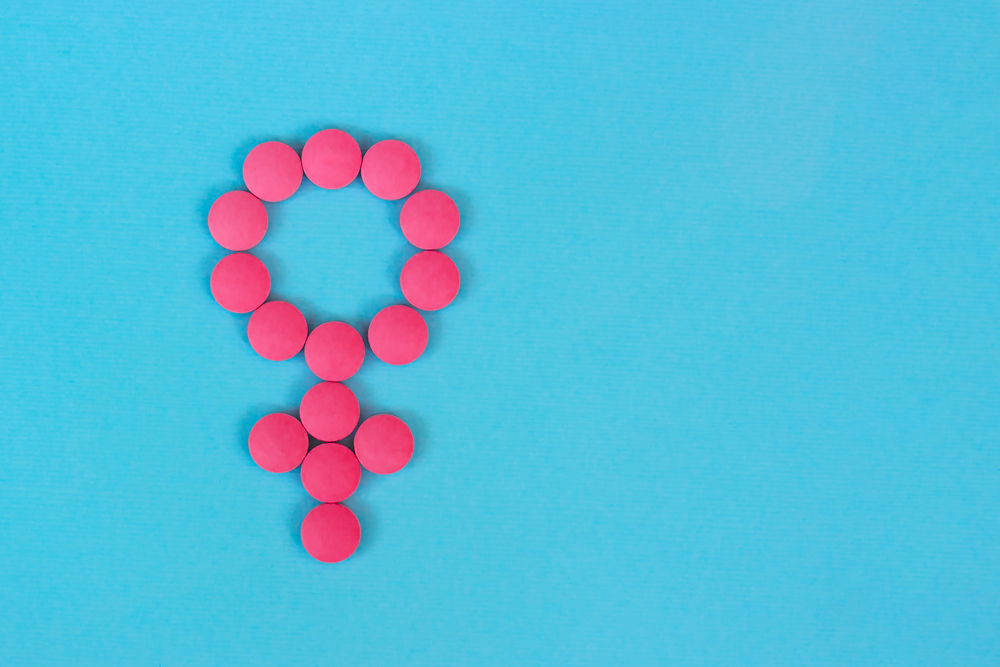Hormones for females in her 40’s is a hot topic. They notice changes within themselves leaving many women in their 40s, are questioning what is going on with their bodies. It’s during this time that many women undergo a variety of hormonal changes. These can have a significant impact on their physical and emotional well-being. These changes are a natural part of the aging process and can be attributed to perimenopause and menopause.
It isn’t all doom and gloom though.
Understanding the hormonal changes that occur during this time can help you better navigate this stage of your life. Then actively taking steps to manage any symptoms you may experience can mean you don’t feel like your hormones are completely controlling your life.
In this blog post, I’ll explore the different hormones that change in a women’s body during their 40’s. Helping you connect the dots between hormonal changes and common symptoms.
Let’s delve a little deeper into the hormones for females and the changes that occur in her 40’s.
Hormones for females in her 40’s:
As a woman gets older, her hormones start to change. Let’s take a closer look at the hormones, what they do and what happens in your 40’s.
Oestrogen:
Oestrogen is a hormone that is primarily produced in the ovaries in females.
Oestrogen plays a crucial role in:
– The development and regulation of the female reproductive system. Including the menstrual cycle and the growth and development of the breasts and uterus.
– It also helps to maintain bone density and contributes to the health of the cardiovascular system, skin, and hair.
Once we enter perimenopause, oestrogen kicks into gear and goes on a wild rollercoaster ride fluctuating from high to low.
These highs and lows can lead to a variety of symptoms such as hot flushes, night sweats, mood changes, headaches and vaginal dryness. To read more about the symptoms of perimenopause, check out the blog “Are your perimenopausal – 3 Signs that may indicate you are”
If you want to understand more about the ‘Hormonal Highs and Lows’ join me for my upcoming free webinar.
Progesterone:
Progesterone is a hormone that is primarily produced in the ovaries in females. It plays a critical role in:
– The regulation of the menstrual cycle and the maintenance of pregnancy.
– It helps to prepare the lining of the uterus for implantation of a fertilized egg.
– It supports the growth and development of the placenta during pregnancy.
– It also helps to regulate the body’s fluid balance.
Progesterone levels fluctuate throughout the menstrual cycle, with higher levels in the luteal phase (after ovulation) and lower levels during menstruation.
However, as you head into your 40’s and approach perimenopause, your ovarian function starts to decline, which can lead to changes in progesterone levels. During perimenopause, progesterone levels may become more irregular and less predictable, resulting in changes to the menstrual cycle. The ovaries produce less progesterone, which can lead to irregular or skipped periods, and contribute to other perimenopausal symptoms such as hot flushes, mood changes, and insomnia.
Follicle-stimulating hormone (FSH):
Follicle-stimulating hormone (FSH) is a hormone that is produced and released by the pituitary gland in the brain. FSH plays a key role in:
– Regulating the menstrual cycle.
– The growth and development of eggs in the ovaries in females.
FSH stimulates the growth and development of ovarian follicles, which contain the eggs, during the first half of the menstrual cycle. FSH levels rise during this time and stimulate the follicles to produce oestrogen. As the follicles mature, they release more oestrogen, which suppresses FSH production and triggers the release of luteinizing hormone (LH) to trigger ovulation.
FSH levels can change during perimenopause. In perimenopause, your ovarian function starts to decline, which can lead to changes in FSH levels. The FSH levels may fluctuate, with changes in the cycle. The ovaries become less responsive to FSH, which can lead to a decrease in oestrogen production and irregular or skipped periods. In some cases, FSH levels may increase as the body tries to compensate for the decline in ovarian function, leading to an increase in symptoms.
Luteinizing hormone:
Luteinizing hormone is secreted by the anterior pituitary gland and plays a key role in regulating the menstrual cycle and ovulation.
In perimenopause, luteinizing hormone (LH) levels can fluctuate greatly. As women age and approach perimenopause, their ovarian function starts to decline, which can lead to changes in LH levels.
These fluctuations in LH levels can cause the ovaries to release eggs less regularly, leading to irregular periods or missed periods.
In some cases, women may experience an increase in LH levels, which can contribute to the development of other perimenopausal symptoms such as hot flushes, night sweats, and mood changes.
Testosterone:
Testosterone: In women, testosterone helps to:
- Stimulate sexual desire
- Maintain bone density
- Contribute to the growth and maintenance of muscle mass.
- Regulates mood, energy levels, and cognitive function.
During perimenopause, testosterone levels can decline. This may leave you feeling like your libido has disappeared, feeling really tired, moody and irritable. Plus also the possibility that you’ve noticed a change in your body shape, with the loss of muscle mass too.
Hormones for females: The Symptoms
All the changes in the hormones mentioned above can have a significant impact on a women’s life. Particularly if they are accompanied by the symptoms mentioned below.
These may include:
- Irregular periods.
- Hot flashes/Night sweats. To read more about hot flushes, click here
- To read more about sleep and hormones, click here.
- Mood changes
- Headaches and migraines. To read more about headaches and migraines, click here
- Vaginal symptoms
- Bladder symptoms
- Changes to fertility
- Changes in libido
- Changes in bone density
- Changing cholesterol levels.
Finally, know that if you are searching ‘Hormones for females in your 40’s”, you are not alone. Many other women are experiencing these same symptoms, fears and concerns. Also know that you don’t have to grin and bear it or suffer. There is lots that can be done to support your hormones and get you back to feeling like your hormones are not controlling your life.
Join me for my upcoming webinar ‘Hormonal Highs and Lows: Managing the Perimenopause Rollercoaster’ to gain a better understanding how these hormonal changes are effecting you and ways to manage it.


